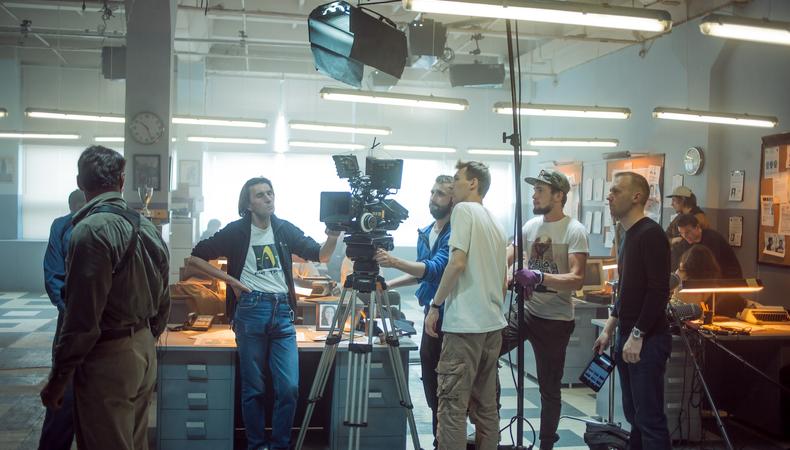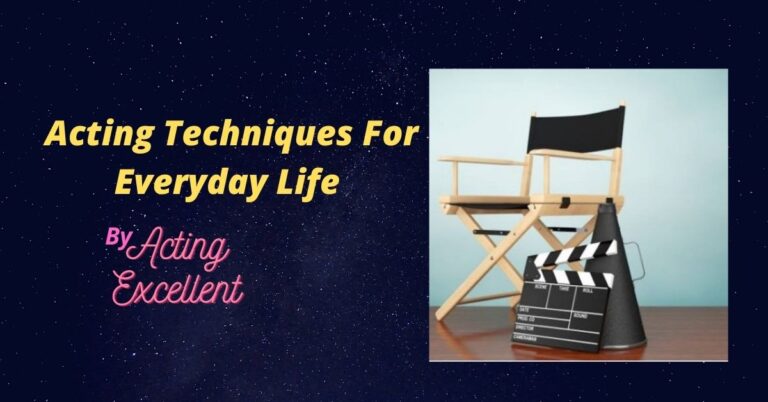Backstage Cast
Discover the fascinating world of the backstage cast, from the dedicated professionals behind the scenes of live performances to the vibrant online platform empowering actors. Explore their crucial roles, celebrate their contributions, and learn how to support the magic they create.
While the audience is captivated by the actors on stage, a hidden world of activity thrives behind the curtain. This is the realm of the backstage cast, the dedicated individuals who labor tirelessly to bring each performance to life. From transforming actors into their characters to ensuring the set runs smoothly, the backstage cast plays a crucial role in every successful production.
Yet, their contributions often go unnoticed, their names rarely appearing on playbills or receiving recognition. This article delves into the fascinating world of the backstage cast, revealing the dedication, talent, and invisible magic they weave into every show. Prepare to be surprised as we unveil the stories of these unsung heroes, who dedicate their time and passion to crafting unforgettable experiences for the audience.
Table of Contents
What You Didn’t Know About the Backstage Cast
Have you ever wondered what goes on behind the scenes of a play, musical, or other live performance? The truth is, the magic that unfolds on stage is only possible due to the tireless efforts of a dedicated team of unsung heroes: the backstage cast.
But who are these individuals Backstage Cast, and what exactly do they do?
While the actors take center stage and receive applause, the backstage cast works tirelessly to ensure every aspect of the production runs smoothly. They are the invisible architects, responsible for everything from building sets and designing costumes to coordinating sound and lighting cues.
Their work is often demanding and complex, requiring diverse skills and talents. From stagehands and technicians who possess a strong understanding of mechanics and technology to costume designers and hair stylists with an eye for detail and creativity, each backstage cast member plays a vital role in bringing the show to life.
But beyond their technical expertise, the backstage cast is also united by a passion for storytelling and a deep commitment to their craft. They are the glue that holds the production together, working seamlessly to create a cohesive and immersive experience for the audience.
So, the next time you attend a live performance, take a moment to appreciate the unseen heroes who make it possible.
Continue reading to discover the untold stories of the backstage cast:
- Meet the individuals who dedicate their lives to working behind the scenes.
- Learn about the unique challenges and rewards of working in theatre production.
- Uncover the secrets of stage magic and the hidden talents of the backstage crew.
- Discover why the backstage cast is the beating heart of every successful performance.
Take advantage of this captivating journey behind the curtain!
Do you know what a backstage cast is?
Backstage cast” can have two different meanings depending on the context:
1. Backstage is a physical space and its staff
While the audience is captivated by the vibrant energy and electrifying performances on stage, a hidden world hums with activity just out of sight. This is backstage, the beating heart of any live production where a dedicated team of individuals works tirelessly to weave magic behind the curtain. More than just a physical space, backstage is a complex ecosystem teeming with diverse talents and unwavering dedication. Here, you’ll find:
The Actors and Understudies: Embodying the characters that bring stories to life, they rehearse diligently and prepare for their moment in the spotlight. Understudies stand ready, poised to step in and ensure the show goes on seamlessly.
The Stage Managers and Assistants: Orchestrating the entire performance precisely, they oversee every cue, coordinate transitions, and troubleshoot any hiccups, ensuring the show runs smoothly and flawlessly.
The Directors and Choreographers: Visionaries behind the production guide the actors, shape the stage movement, and translate the story into a captivating visual experience.
The Costume Designers and Makeup Artists: Transforming actors into their characters, they meticulously design and create costumes that speak volumes about the characters and their worlds, while makeup artists enhance their appearances, adding another layer of depth and authenticity.
Read More: 34 rules for makeup to look younger after and before
The Set Designers and Builders: Crafting the physical environment where the story unfolds, they design and build the sets, bringing the world of the play to life with their artistry and technical expertise.
The Lighting and Sound Technicians: Weaving magic with light and sound creates the atmosphere and cue effects and enhances the performance’s emotional impact.
The Prop Masters and Stagehands: Ensuring every detail is perfect, they manage props, handle set changes, and support the overall smooth running of the production.
The Ushers and Other Support Staff: Welcoming the audience and ensuring their comfort. They play a crucial role in creating a positive and enjoyable experience for everyone.
Regardless of their specific role, each member of this backstage cast contributes a crucial piece to the puzzle. Their collective expertise, unwavering commitment, and passion for storytelling make every performance an unforgettable experience. Step into the shadows and discover the hidden heroes of the stage. Read on to explore the fascinating world of the backstage cast and uncover the secrets that bring your favorite performances to life.
2. Backstage as a website and platform for actors
When encountering the term “backstage cast,” its meaning can shift depending on the context. Beyond live performances, “Backstage” is a significant presence in the digital sphere as a website and platform created specifically for actors. This online platform offers a comprehensive set of resources and tools to support actors in their career journeys, including:
- Casting notices and audition announcements: Providing actors with a gateway to discover potential acting opportunities.
- Acting tips and advice: Sharing valuable insights and expertise from established professionals in the field.
- Industry news and interviews: Keeping actors informed about current trends and developments within the acting world.
- Educational resources and training opportunities: Offering actors diverse avenues to learn and enhance their skills.
- A vibrant community forum: Fostering a space for actors to connect, network, and share their experiences.
In this online context, “backstage cast” can have two distinct interpretations:
- Backstage as the platform itself: In this sense, “backstage cast” refers to the website, encompassing the platform’s infrastructure, resources, and functionalities. It represents the virtual stage where actors gather to navigate their careers and connect with the broader acting community.
- Backstage as the community of actors: Alternatively, “backstage cast” can refer to the diverse community of actors who actively utilize the platform. This includes aspiring and established actors from various backgrounds and experiences, all united by their shared passion for the craft and their desire to advance their careers.
Understanding this duality in the meaning of “backstage cast” helps us navigate the online world of acting and its associated resources. Recognizing the context allows us to decipher the intended purpose and interpret the information presented in the appropriate light.
For instance, if you encounter the term “backstage cast” while browsing the Backstage website, it most likely refers to the platform’s user community. However, if you come across the time in an article discussing the latest industry trends, it might refer to the venue as a valuable resource for actors. By appreciating these distinctions, you can effectively explore the world of acting online and leverage the valuable resources and opportunities ” Backstage ” provides in its dual role as a platform and a thriving community.
Tips for Backstage Learners
Want to be in the Backstage Cast? No worry, Being a backstage learner requires a unique blend of skills and knowledge. By following these tips and cultivating a strong work ethic, you can fulfill a career in the backstage world and contribute to the magic of live performance. Here are some tips to help you in this demanding yet rewarding field:
Tip 1: Get a Technical Skills
- Master the fundamentals: Develop a strong understanding of stagecraft, lighting, sound, set design, and other technical aspects of theatrical productions.
- Be adaptable and versatile: Learn to operate various equipment and adapt to different stage configurations.
- Embrace technology: Stay updated on the latest technological advancements in the industry and learn to utilize them effectively.
- Problem-solve quickly and efficiently: Be prepared to think on your feet and find solutions to unexpected challenges during rehearsals and performances.
Tip 2: Do good Communication and Collaboration
- Communicate effectively: Work closely with directors, stage managers, actors, and other crew members to ensure smooth production flow.
- Develop strong interpersonal skills: Learn to collaborate effectively with people from diverse backgrounds and temperaments.
- Practice active listening: Pay close attention to instructions and feedback to avoid mistakes and ensure high-quality results.
- Be proactive and take initiative: Be bold, ask questions, offer suggestions, and take on additional responsibilities.
Tip 3: Organizational Skills
- Plan and prioritize effectively: Manage your time to meet deadlines and stay organized throughout production.
- Stay on top of details: Pay attention to even the most minor aspects of the set, lighting, and props to ensure everything is perfect.
- Develop strong documentation skills: Keep detailed notes, logs, and reports to track progress and facilitate team communication.
- Be a team player: Work collaboratively to achieve common goals and prioritize the production’s success.
Tip 4: Do proper Learning and Development
- Never stop learning: Continuously seek new knowledge and skills through workshops, training programs, and self-directed study.
- Network with industry professionals: Connect with experienced crew members, directors, and artists to gain valuable insights and build your professional network.
- Be a lifelong learner: Cultivate a curiosity for new ideas and a passion for exploring different aspects of the theatre world.
- Embrace feedback: See feedback as an opportunity to improve and grow, and be receptive to suggestions for improvement.
Additional Tips
- Build a strong work ethic: Be reliable, punctual, and dedicated.
- Develop a positive attitude: Maintain a positive outlook and be willing to go the extra mile.
- Be patient and persistent: Success in the backstage world takes time and effort. Don’t get discouraged by setbacks, and keep pushing forward.
- Find your passion: Identify the most interesting backstage work areas and focus on developing your skills.
How to get backstage casting for free?
There are various ways to get backstage casting for free, depending on the level of involvement you’re seeking and what resources are available in your area. Remember, gaining experience in backstage work often involves starting small and demonstrating dedication and commitment. By utilizing these free resources and opportunities, you can gradually build your skills, network with industry professionals, and increase your chances of landing paid backstage casting opportunities. Here are some options to consider:
1. Network and volunteer
- Connect with local theatre companies and independent productions: Attend their performances, network with directors and other crew members, and express your volunteer interest. Many shows rely on volunteer support for various backstage tasks, including set construction, lighting, sound, props, and wardrobe.
- Reach out to universities and colleges with solid theatre programs: They often stage student productions that require backstage crew support and offer opportunities for volunteers to gain experience.
- Join community theatre groups and organizations: These groups frequently put on productions and welcome volunteers to contribute their skills and learn the ropes.
2. Utilize online platforms and resources
- Sign up for free online casting websites and platforms: Many platforms, like Backstage and Actor’s Access, offer free basic memberships that allow you to browse casting calls for various projects. You can filter your search to find projects specifically seeking volunteers or unpaid crew members.
- Follow social media pages and groups dedicated to theatre and backstage work: These platforms often share casting calls and volunteer opportunities.
- Connect with other aspiring backstage professionals online: Join online forums and communities to network, share information, and learn from others in the field.
Read More: Get money by Managing social media for actors (2024)
3. Participate in workshops and training programs
- Look for free workshops and training programs from local theatre companies, universities, or community organizations. These programs can teach you valuable skills and knowledge relevant to backstage work, increasing your chances of being selected for unpaid crew positions.
- Attend open auditions and workshops organized by professional productions. While these opportunities may not always guarantee paid work, they can give you valuable exposure to industry professionals and provide practical experience for your portfolio.
4. Be proactive and persistent
Don’t wait for opportunities to come to you. Contact theatre companies, directors, and other professionals to express your interest and inquire about volunteer opportunities.
- Highlight your skills and experience: Prepare a resume and portfolio showcasing your relevant skills and experiences, even if they are limited. This will make you a more attractive candidate for potential volunteer roles.
- Be willing to start small: Don’t be discouraged if you don’t land a significant role immediately. Be ready to start with smaller tasks and work up to more challenging parts as you gain experience and build your reputation.
Is Backstage good for casting?
Whether or not Backstage is good for casting depends on your specific needs and expectations. Here’s a breakdown of its pros and cons:
Pros
- Extensive database of casting calls: Backstage boasts one of the largest databases of casting calls in the industry, covering various projects like film, television, theatre, commercials, and voiceovers. This increases your chances of finding relevant opportunities.
- User-friendly interface: The platform is easy to navigate and search, allowing you to filter casting calls by location, project type, role, pay rate, and other criteria.
- Additional resources: Backstage offers various resources beyond casting calls, including acting tips and advice, industry news, professional interviews, and educational materials.
- Free basic membership: You can create a free account on Backstage to browse casting calls and access limited resources. This is a good option for beginners or those with a tight budget.
- Paid membership benefits: Paid memberships unlock additional features like applying to casting calls, submitting self-tapes, receiving personalized recommendations, and accessing exclusive content.
Cons
- Competition: Backstage can be highly competitive, especially for famous roles and projects. This means you’ll be facing stiff competition from other actors.
- Cost: Paid memberships can be expensive, especially for professional actors who need access to the full range of features.
- Focus on professional actors: Backstage primarily caters to professional actors with experience and representation. This can make it difficult for beginners or less experienced actors to stand out.
- Limited opportunities for unpaid work: While Backstage lists some volunteer and unpaid crew positions, most casting calls are for paid roles.
- False or misleading listings: Occasionally, fake or inaccurate casting calls may appear on the platform. Be cautious and conduct your research before applying for any role.
Overall
Backstage can be a valuable tool for actors seeking casting opportunities, especially those with some experience and representation. However, it’s essential to be aware of the competition and consider the cost of paid memberships before relying solely on Backstage for your casting needs. Combining Backstage with other strategies, such as networking, attending workshops, and participating in local productions, can significantly improve your chances of success in the industry. Here are some additional factors to consider when deciding if Backstage is suitable for you:
- Your experience level: Backstage benefits experienced actors with established profiles and credits more.
- Your budget: Paid memberships offer more features but can be expensive.
- Your location: Backstage lists opportunities primarily in major cities.
- Your specific goals: Consider if Backstage aligns with your career goals and provides the type of casting opportunities you seek.
Ultimately, the effectiveness of Backstage depends on your circumstances and approach. By understanding its benefits and limitations, you can decide whether it fits your needs as an actor.
Who became famous from Backstage Cast?
Several actors have achieved significant fame after using Backstage to find opportunities and launch their careers. Here are some notable examples:
Mainstream actors
- Sandra Bullock: The Oscar-winning actress found her breakthrough role in the film “Speed” after landing the audition through a Backstage casting call.
- Chris Evans: Captain America used Backstage to find early roles in projects like “Not Another Teen Movie” and “The Perfect Score.”
- Leslie Odom Jr.: The Tony and Grammy Award-winning actor gained recognition for his role in the hit Broadway musical “Hamilton” after securing the audition through Backstage.
- Jonathan Groff: The Emmy-nominated actor landed his breakout role in the Broadway musical “Spring Awakening” after finding the casting call on Backstage.
- James Earl Jones: Legendary actor known for voicing Darth Vader and Mufasa used Backstage to find early theatre work in New York City.
- Ed Burns: Indie film director and actor used Backstage to find casting opportunities for his early projects, including “The Brothers McMullen” and “She’s the One.”
- Connie Britton: Emmy-nominated actress used Backstage to land roles in various television shows like “Spin City” and “Friday Night Lights.”
- Kathryn Hahn: The versatile actress found early success in theatre productions after securing auditions through Backstage.
- Kerry Washington: The Golden Globe-nominated actress used Backstage to find early roles in film and television, including “Save the Last Dance” and “The Jury.”
- Zachary Quinto: The Emmy-nominated actor used Backstage to land roles in various productions, including the Broadway revival of “Angels in America.”
Additional examples
- Numerous actors from popular television shows: Cast members from shows like “Grey’s Anatomy,” “The Good Place,” and “Scandal” have utilized Backstage to find opportunities.
- Broadway and Off-Broadway actors: Many talented actors who have succeeded onstage discovered their roles through Backstage.
- Voiceover artists: Backstage provides a platform for voiceover artists to connect with casting directors seeking talent for commercials, audiobooks, and animation projects.
This is just a small sampling of the actors who have benefited from Backstage. The platform continues to be a valuable resource for actors of all levels. It provides access to various casting opportunities and helps them launch their careers on stage and screen.
It’s important to note that achieving fame requires talent, hard work, and persistence beyond simply using Backstage. However, the platform offers a valuable tool for actors to connect with casting directors and increase their chances of securing roles to help them achieve their goals.
How much does it cost to cast Backstage?
The cost of casting on Backstage depends on your specific needs and the level of exposure you want for your project. Here’s a breakdown of the different options and their associated costs:
Free Option
- Create a free “Find Talent” employer account: This allows you to post one casting notice per month, view limited profiles of actors, and receive basic communication features.
Paid Options
- Essential Casting Services: Starting at $24.95 per casting notice, this option allows you to reach a wider audience of actors, receive unlimited applications, and access additional features like video submissions and resume downloads.
- Plus Casting Services: Starting at $49.95 per casting notice, this option provides all the features of Basic Casting Services plus advanced features like searching by specific criteria, sending targeted emails to actors, and receiving priority support.
- Pro Casting Services: Starting at $99.95 per casting notice, this option offers the most comprehensive features, including unlimited casting notices, access to the entire Backstage actor database, priority placement in search results, and dedicated account management support.
Read More: Top 5 Ways to Earn Money Online by Movie Reviews
Additional Costs
- Featured Listings: You can pay an additional fee to have your casting notice displayed prominently on Backstage and receive increased visibility.
- Casting Credits: You can purchase additional casting credits to post more casting notices if you need to exceed your monthly limit.
- Subscriptions: Backstage offers monthly and annual subscriptions that provide significant discounts on casting services and additional features like unlimited video submissions and resume downloads.
Factors Affecting Cost
- Project Type: The cost may vary depending on the project you are casting for (film, television, theatre, etc.).
- Number of Roles: Casting multiple roles within a single project can increase the overall cost.
- Location: Casting in major cities may be more expensive than in smaller towns.
- Desired Level of Exposure: The more exposure you want for your project, the higher the cost.
Alternative Options
- Free online casting websites: Several free online platforms, such as Actors Access, Casting Networks, and Mandy.com, allow you to post casting notices.
- Social media: You can use social media platforms like Facebook and Twitter to reach a wider audience of actors and promote your casting call.
- Local theatre companies and acting schools: You can contact local theatre companies and acting schools to reach talented actors in your area.
Choosing the Right Option
The best option for you will depend on your specific budget, project needs, and desired audience. Consider the factors listed above and explore the options available before deciding. Remember, you can always start with a free account and upgrade later.
What is Backstage in acting?
In the context of acting, “Backstage” can have two meanings:
1. Backstage as a physical space
This refers to the area behind the stage in a theatre or performance venue where actors, crew members, and technicians prepare for and execute the production. It’s typically hidden from the audience’s view and serves as the hub of activity where various tasks take place, such as:
- Actors rehearsing their lines and blocking.
- Crew members set up and manage the lights, sound, and props.
- Costume and makeup artists prepare the actors for their performances.
- Stagehands are handling set changes and ensuring smooth transitions.
Essentially, the Backstage is the unseen engine that drives the performance and brings the magic of live theatre to life.
2. Backstage as a website and platform for actors
This refers to a popular website and online platform called Backstage.com, which is dedicated to supporting actors and their careers. It offers a wide range of resources and tools, including:
- Casting notices and audition announcements: Providing actors with opportunities to find and apply for roles in various projects.
- Acting tips and advice: Sharing valuable insights and expertise from industry professionals.
- Industry news and interviews: Keeping actors informed about current trends and developments in the acting world.
- Educational resources and training opportunities: Offering actors diverse avenues to learn and enhance their skills.
- A vibrant community forum: Fostering a space for actors to connect, network, and share their experiences.
Backstage, the platform is a valuable resource for aspiring and established actors, helping them navigate the industry, connect with opportunities, and advance their careers.
It’s important to note the context when encountering the term “Backstage” to determine its intended meaning. If the discussion revolves around live productions, it likely refers to the physical space behind the stage. However, if the context relates to actors and their careers, it’s most likely referring to the online platform and its resources.
Best Backstage Cast Academies
Determining the “best” backstage casting academy is subjective and depends on individual needs and preferences. However, here are some highly respected and recognized academies with solid track records:
In the United States
- AMDA College of the Performing Arts: Offers a comprehensive backstage curriculum with programs in stage management, technical theatre, costume design, and more—campuses located in New York City, Los Angeles, and Chicago.
- The New York Film Academy: Provides intensive hands-on training in various backstage disciplines, including lighting, sound design, and production management—locations in New York City, Los Angeles, Miami, and Burbank.
- California Institute of the Arts (CalArts): Renowned for its rigorous and innovative approach to theatre arts, offering programs in technical direction, production design, and sound design. It is located in Valencia, California.
- North Carolina School of the Arts (NCSA): Offers a Bachelor of Fine Arts in Stage Management and a Master of Fine Arts in Design and Production, focusing on artistic excellence and professional development. We are located in Winston-Salem, North Carolina.
- Stage Management Conservatory at the John F. Kennedy Center for the Performing Arts Provides a unique year-long intensive program designed to train high-calibre stage managers for professional theatre in Washington, D.C.
In Europe
- Royal Academy of Dramatic Art (RADA): It offers a prestigious stage management course recognized for its rigorous training and focus on classical theatre and is located in London, England.
- Guildhall School of Music & Drama: Provides a comprehensive Technical Theatre and Stage Management program emphasizing practical skills and professional development. We are located in London, England.
- National Theatre School of Canada: Renowned for its bilingual training in technical theatre and stage management, offering programs in both French and English. It is located in Montreal, Canada.
- Academy of Theatre and Dance (HZT Berlin): Offers a unique approach to backstage training, emphasizing interdisciplinary collaboration and artistic exploration. Located in Berlin, Germany.
- Académie Nationale des Arts Dramatiques (CNSAD): It provides a prestigious stage management program recognized for its focus on classical theatre and French repertoire and is located in Paris, France.
Additional factors to consider when choosing an academy
- Cost and financial aid options: Tuition fees can vary significantly between academies.
- Program length and intensity: Some programs are intensive and require a full-time commitment, while others offer part-time options.
- Location and facilities: Choose an academy located in a city with a thriving theatre scene and access to professional opportunities.
- Faculty and reputation: Research the instructors and their professional backgrounds to ensure alignment with your learning goals.
- Career placement and alums network: Consider the academy’s track record of helping graduates find jobs in the industry.
Attending a reputable backstage casting academy can provide valuable training, professional connections, and a strong foundation for a successful career in theatre and performance.
It’s essential to conduct thorough research before making a decision. Consider visiting websites, attending open houses, and contacting alumni to gain firsthand insights and determine the best academy for your needs and aspirations.
Backstage Cast Conclusion
As we have explored, the term “backstage cast” encompasses two distinct entities: the invisible army of professionals who make live performances possible and the online platform that empowers actors to navigate their careers. Both play crucial roles in the performing arts ecosystem, each deserving of recognition and appreciation.
What would the world be without the “backstage cast”? Please take a moment to appreciate their invisible impact and consider how their roles extend far beyond the curtain, enriching our lives in ways we might not even realize.







